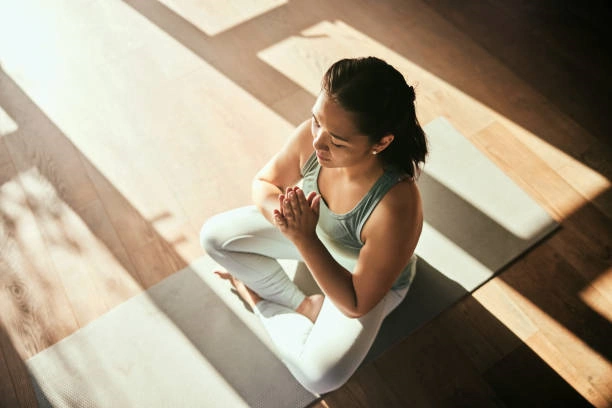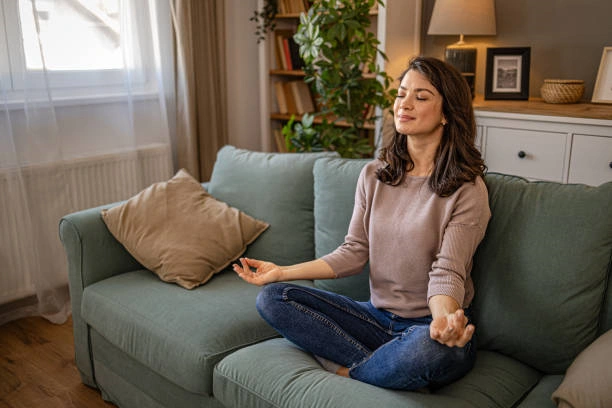The Right Mindset for Mindfulness Meditation Practice
Cultivating the right mindset is part of the practice. Whether you can consistently meditate and stick with it largely depends on your attitude. The correct mindset is reflected in the following aspects:
1.Beginner’s Mind:
Observing your ongoing experiences without judgment, bias, or prediction is called “beginner’s mind.” Essentially, it’s a way of perceiving things with a sense of freshness, as if seeing them for the first time. It means seeing and accepting things as they are in the moment, without attaching any assumptions or judgments. For instance, the next time you encounter something familiar, consider observing it without your usual thoughts, feelings, or evaluations, perceiving it as it truly is. How would you view it if you were seeing it for the first time?
2.Acceptance:
Acceptance is the opposite of forcefulness. When you can calmly face whatever you are experiencing at the moment, you have reached a state of acceptance. Acceptance doesn’t mean you have to like everything that happens (such as tension or pain); it simply means letting things be without resistance. “The more you resist, the more persistent it becomes.” When you resist a problem, you essentially activate and amplify it. Acceptance allows discomfort or problems to run their natural course. While they may not automatically disappear, your relationship with them becomes more harmonious because you are no longer resisting or avoiding them.
In life, acceptance doesn’t mean resignation or giving up on trying to change and grow. Instead, it refers to creating space in life for clear reflection and taking appropriate action. If you overreact or stubbornly fight difficulties, you will never be truly free. Of course, sometimes we need to experience a series of emotional responses, such as fear, anger, or sadness, before reaching acceptance.

3.Non-judgment:
An essential prerequisite for acceptance (and the beginner’s mind) is non-judgment. If you pay attention to your experiences throughout the day, you’ll notice that you often judge things—including the external environment and your own emotions and sensations. These judgments are based on your values and criteria for defining good and bad. If you’re skeptical, try observing for a few minutes to see how often you judge things within that short span.
In meditation practice, you need to learn to let any judgments pass without a trace, observing any thoughts that arise impartially, including judgmental thoughts. Let them come and go while you continue to focus on your breathing or any object you’ve chosen as the focal point for meditation.
4.Patience:
Patience is closely related to acceptance and non-forcefulness. It means letting things flow naturally and allowing your meditation practice to be relaxed and unhurried. To meditate for half an hour every day, you need patience. If you’ve been meditating for days or weeks but haven’t seen any effect, patience is required. In our fast-paced society, rushing from one destination to another is the norm, but patience goes against this societal trend.
5.Letting Go:
Learning to let go is crucial for meditation practice. When you cling tightly to any experience, whether pleasurable or painful, you can’t observe the present moment without judgment or forcefulness. Acceptance helps us learn to let go. Letting go is a natural outcome of being willing to accept things as they are. Before meditating, if you find it difficult to let go of certain worries, you can use meditation as a means to observe the thoughts and feelings created by your worries, including the very notion of “holding on tightly.”
The more thoroughly you observe the specific thoughts and feelings surrounding a particular issue, the quicker you’ll expand your awareness of the problem and let it go.

6.Trust:
Another important mindset for meditation is trusting yourself. This means respecting your intuition, reactions, and feelings, regardless of what any authority or other people might think. You don’t judge the thoughts that arise during your experiences and trust that your inner self is inherently good. The purpose of meditation practice is to be more fully yourself. Practicing mindfulness means taking responsibility for your experience at every moment, and only you, not others, can be responsible for your experiences.
To fully embrace this experience, you must trust yourself. Trusting your vision and wisdom helps you cultivate compassion for yourself and others.
7.Responsibility and Self-discipline:
A strong sense of responsibility and consistent self-discipline are crucial for meditation practice. While meditation is extremely simple in essence, it is not easy to practice. Few of us value a life without desires or pursuits, so learning to abandon goal-oriented activities requires responsibility and self-discipline. To develop a habit of meditating, it’s best to practice 6-7 times a week for at least two months.
If you find yourself unable to sit still, don’t punish yourself—this is a common issue for beginners. Just do your best. Although the principle of meditation is non-forcefulness, persistence in forming the habit can fundamentally change your life.
Meditation won’t change any circumstances in your life, but it can fundamentally transform your relationship with all experiences. While meditation itself may not have any conscious goal, the benefits that follow from self-observation are immense.








